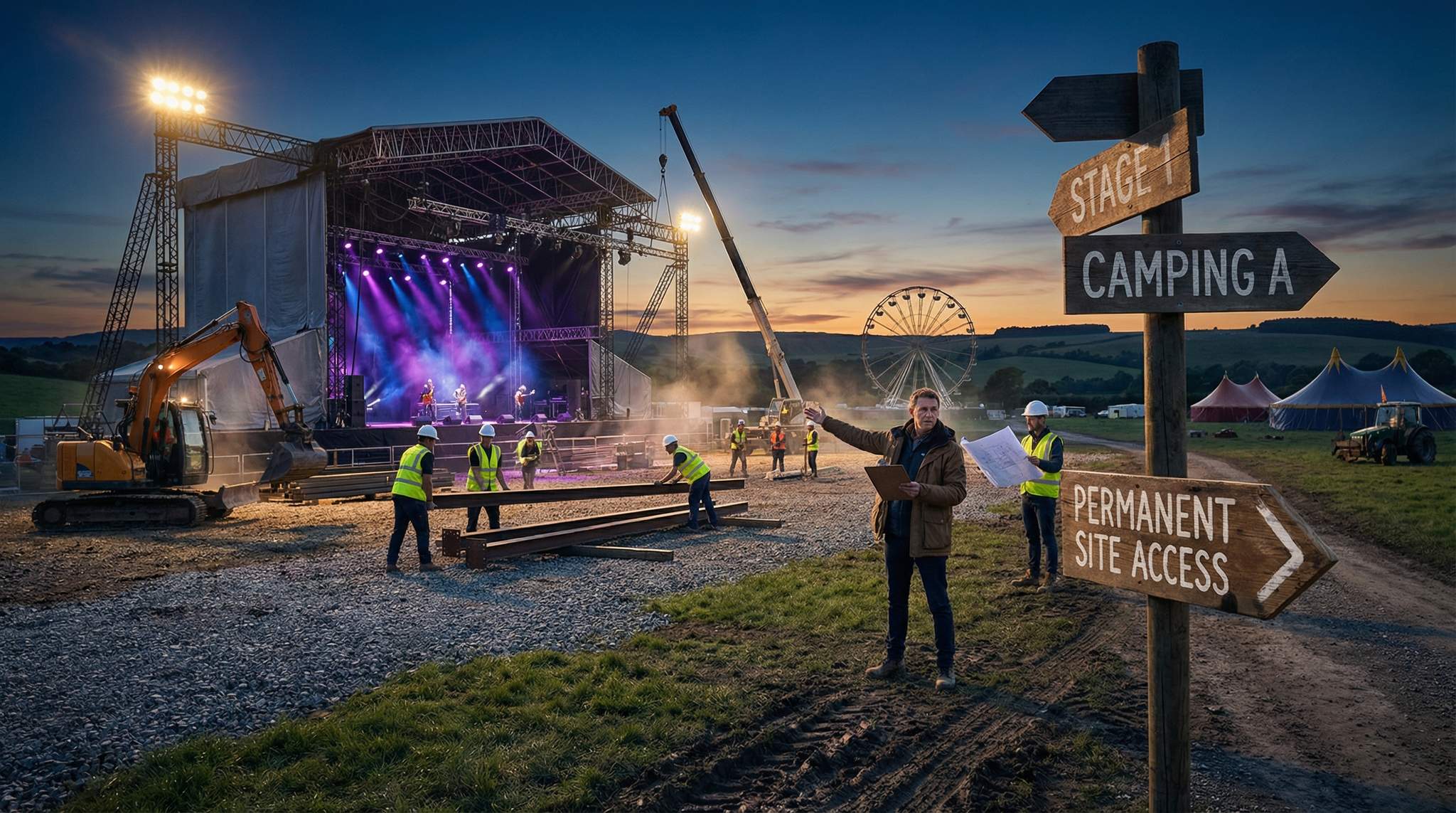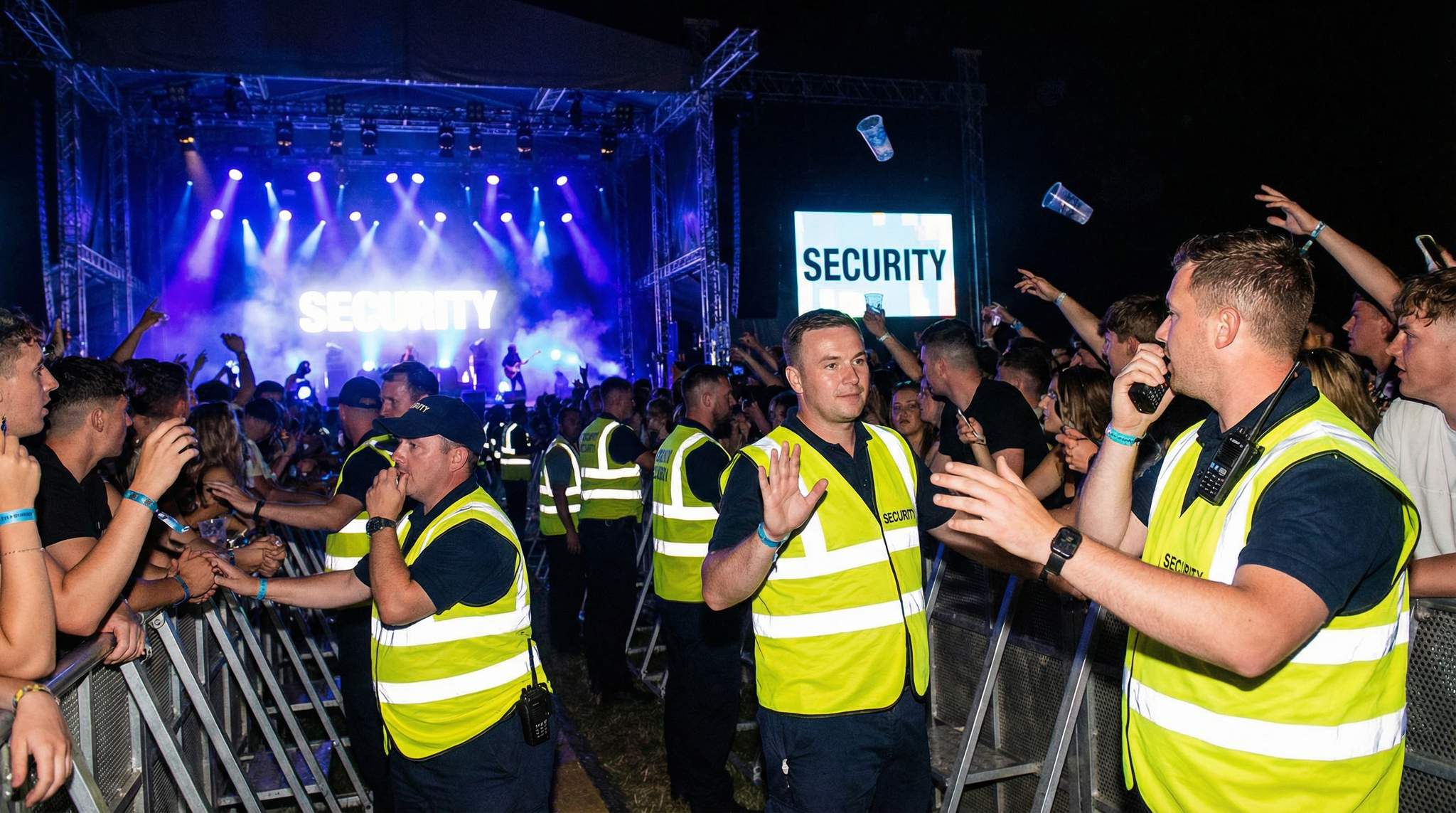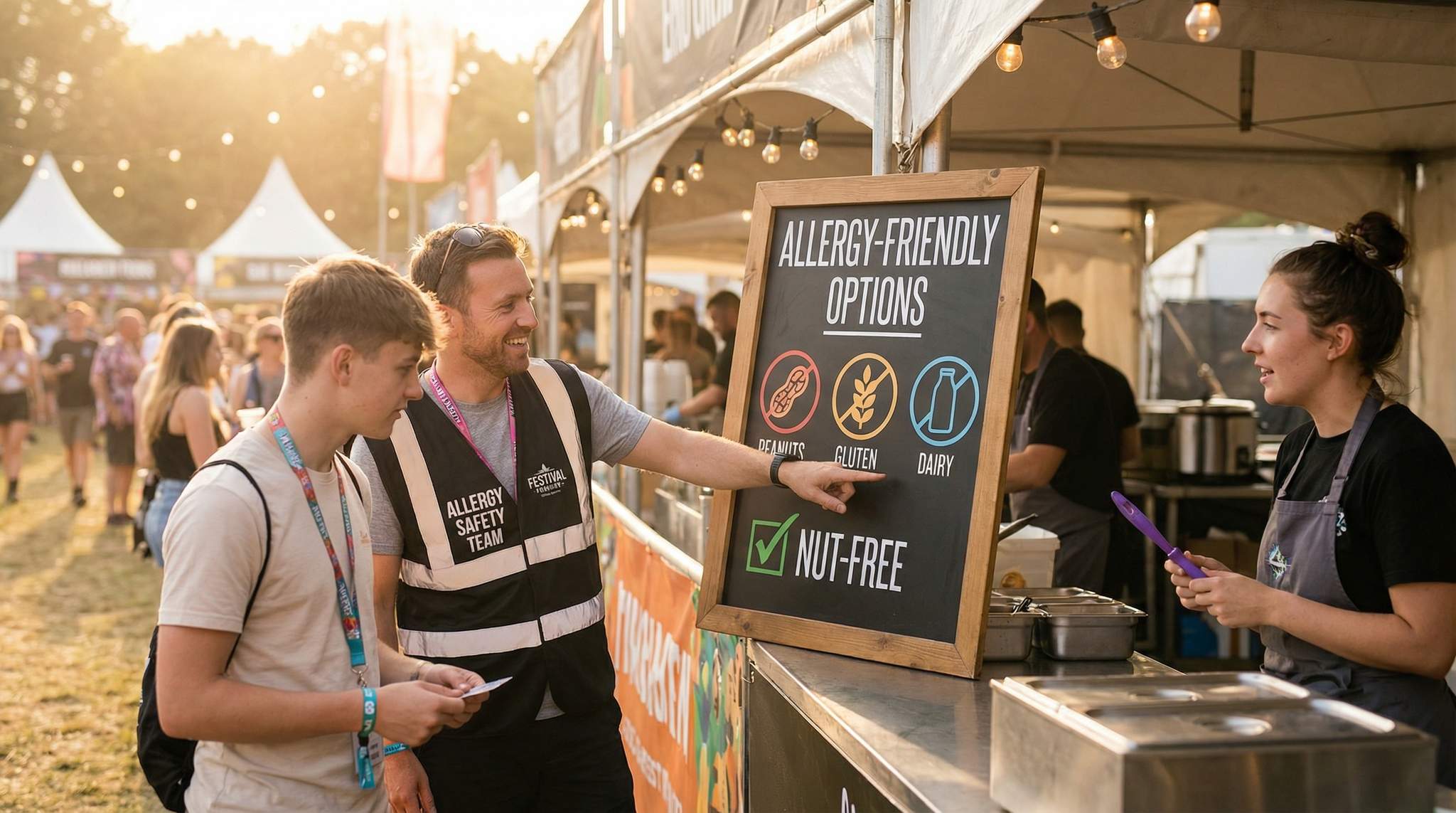Ending a festival is both a relief and a pivotal opportunity. Once the last attendee has left and the stages go dark, a festival organizer’s job isn’t truly over. In fact, what happens after the festival – through thoughtful debriefings and genuine appreciation – can set the stage for even greater success next year. How a production team takes stock of the event and acknowledges their crew’s hard work can make the difference between a one-off effort and a sustainable annual tradition. It’s an essential phase where lessons are captured, morale is boosted, and your team’s loyalty is solidified.
Holding Post-Festival Debrief Meetings
A well-run debrief meeting is the first step toward continuous improvement. Seasoned festival producers make it standard practice to gather the team soon after the event ends – typically within a week, when memories are still fresh. For a small boutique festival, this might be a single meeting with all staff and key volunteers in one room. For a large-scale festival with hundreds of crew members, separate debrief sessions can be held by department (e.g., security, stage management, vendors, logistics) before bringing leadership together to discuss the overarching event. The goal is to create a safe space for staff to voice what worked well and what needs improvement, without fear of blame or reprisal.
During the debrief, it’s important to have a clear but flexible agenda. Start by highlighting successes: encourage team members to share proud moments or strategies that went well. Next, delve into challenges: what were the bottlenecks or issues encountered? Effective facilitators ensure the discussion stays constructive and focused on the event processes (not personal shortcomings) to gain valuable insights for future improvement. For instance, instead of pointing fingers like “John didn’t manage the gate well,” frame it as “The entry gate process got overwhelmed at peak times – how can we improve the staffing or layout next year?” This keeps the conversation solution-oriented. Some festivals find it useful to ask each department for a brief report. Others use prompts such as: Did we have enough team members for each task? Were schedules and breaks adequate? How did our communication channels perform? What was attendee feedback to staff on the ground? These guided questions ensure key operational areas are reviewed.
It can help to mix formats to get honest input. Alongside meetings, consider anonymous feedback forms or post-event surveys for crew who might be hesitant to speak up in a group. At one food and wine festival, organizers set up an online survey and a “suggestion box” (both physical and digital) so quieter team members could contribute ideas candidly. Another music festival host might organize a casual “pizza debrief” night – providing dinner and an informal setting, which often leads to more open conversation than a boardroom meeting. The main aim is that every crew member, from entry-level volunteers to department heads, feels their voice is heard in the festival’s after-action review.
Documenting Feedback and Lessons Learned
Collecting feedback is only half the battle – what truly matters is documenting and using it. Capture the insights from debrief discussions in writing. Assign someone to take detailed notes during meetings or compile comments from surveys into a report. Many veteran producers keep a running “Post-Event Report” or festival playbook that gets updated every year. This document should outline: what went well (so you can repeat it), what went wrong (and proposed solutions), logistical data (attendance numbers, schedules, incidents), and any innovative ideas for next time. By documenting all this, you create an institutional memory that doesn’t fade when temporary staff move on.
For example, a regional film festival might note in their report that “Saturday’s screenings started late due to slow ticket scanning – consider additional scanners or staff training for next year.” Meanwhile, a large outdoor music festival could record that “Volunteer camping check-ins were smooth after expanding the team by 20% compared to last year,” highlighting a success to carry forward. Keeping these records means that when planning the next edition, the team can proactively address past pain points instead of scrambling to remember what they vowed to fix.
Planning a Festival?
Ticket Fairy's festival ticketing platform handles multi-day passes, RFID wristbands, and complex festival operations.
Make sure to share the summary of feedback and key takeaways back to the team as well. This close-the-loop communication shows transparency and that input was valued. It can be as simple as an email outlining “5 major improvements we’ll aim for next year based on your feedback,” or a section in the thank-you letter listing the lessons learned. When crew members see their suggestions documented and taken seriously, they feel a sense of ownership in the festival’s future. This encourages ongoing engagement – some staff might even volunteer to help implement solutions for the next event.
Recognizing and Appreciating the Crew’s Hard Work
After the whirlwind of a festival, every crew member – whether paid staff, contractor, or volunteer – will appreciate acknowledgment of their hard work. Showing appreciation isn’t just a kind gesture; it’s a strategic investment in your team’s morale and retention. There are many ways a festival can thank its crew, and the most effective approaches often combine immediate gratitude with lasting tokens of appreciation.
A common first step is sending a sincere thank-you message to all team members as soon as possible post-event. A heartfelt, personalized email from the festival director or organizing committee can go a long way. In it, recap the event’s successes (“We welcomed 10,000 attendees safely through the gates and created unforgettable memories together”) and explicitly credit the team for making it possible. If feasible, mention specific high points or shout-outs (e.g., the staging crew’s quick thinking during a sudden downpour, or the customer service team’s high praise from attendees). The key is to ensure each person feels seen. Even large festivals can manage this by having team leaders add a short, personalized note for their departments within a mass thank-you email.
Beyond letters and emails, many festivals hold a crew appreciation event after the dust settles. This could be a simple after-party on the final night once attendees have left, or a dedicated gathering a week or two later. For instance, a mid-sized community festival might host a casual barbeque or gathering at a local park – a chance for everyone to relax together, swap stories, and celebrate what they accomplished. A major multi-day festival might plan a closing night party just for staff and volunteers, complete with music, refreshments, and perhaps a highlight reel of the festival’s best moments. These events not only serve as thanks but also help the team bond and decompress together after the intense work.
Small tokens of gratitude can have a big impact as well. Some events give thank-you gifts such as commemorative t-shirts, pins, or posters signed by the performers. Others might provide gift cards, especially if the festival can partner with sponsors to supply them. Even on a tight budget, there are options: consider printing certificates of appreciation, or writing a personal thank-you card to each key team member. One outdoor adventure festival mailed out hand-signed thank-you postcards featuring a photo of the whole crew taken on the final day – a memento that many pinned on their wall as a badge of honor. It’s less about the monetary value and more about the sincerity behind it.
Also, don’t underestimate public recognition. People take pride in working on a successful festival. A public shout-out on social media or in the festival’s newsletter highlighting the crew’s efforts can mean a lot (for example, a Facebook post saying “Huge thanks to our 200+ crew members who made this event possible!”). Some festivals list key crew or all volunteers on their website or event program as a roll of honor. Recognizing individuals who went above and beyond with “Festival MVP” awards or volunteer-of-the-year mentions in your communications can motivate others too. Just be fair and inclusive with recognition so no subgroup feels overlooked.
Need Festival Funding?
Get the capital you need to book headliners, secure venues, and scale your festival production.
Why Post-Event Care Affects Retention and Future Festivals
How you treat your crew after the event is over has a direct impact on whether they’ll be willing to work with you again. Festivals often rely on a mix of returning staff and volunteers year after year – these returning team members become carriers of invaluable institutional knowledge. When a significant portion of your crew comes back next year, they already know the event’s quirks, the venue layout, and the team dynamics, making the next production smoother. Retaining experienced crew also means you spend less time training newcomers and can trust department leads to mentor any new recruits.
Appreciated team members are simply more likely to return. If crew feel that their efforts were valued and their voices heard, it builds loyalty. Conversely, if people depart feeling ignored or underappreciated, they may not sign up again – and worse, they might share that negative experience with others. For example, a regional festival that skipped its crew debrief and thank-you process one year found that fewer than half its volunteer team returned the next season. Several past volunteers mentioned feeling ‘burnt out and unrecognized’ as their reason for not coming back. That festival had to scramble to recruit and train new staff – a costly setback that could have been avoided by nurturing the original team.
Word of mouth matters in the event labor community; festivals known for treating their teams well attract enthusiastic staff, while those with a reputation for neglecting their crew struggle to find help.
It’s worth noting that post-event debriefs themselves contribute to retention by fostering a sense of ownership and improvement. When staff see that their feedback leads to real changes, they’re more likely to stay invested. For example, a volunteer at a city arts festival might suggest a better way to manage lines at the food stalls. If by next year the festival implements this idea (and maybe even asks that volunteer to help lead the initiative), it demonstrates trust and respect. That volunteer is now far more likely to return and feel committed to the festival’s success long-term.
Research and industry experience both back up the importance of recognition and communication in keeping event teams engaged. Studies on event volunteers have found that a lack of recognition and feedback is closely linked to volunteers deciding not to return. On the other hand, providing support, clear communication, and thank-yous boosts their enthusiasm and intent to continue. In practical terms, this means the extra effort to hold that debrief meeting and send those thank-you notes can save a lot of effort in recruiting and training new staff from scratch next time.
Finally, a culture of appreciation tends to create ambassadors for your festival. A crew member who had a great experience will not only return but also recommend working the event to friends or professional contacts. This helps sustain a pipeline of passionate people joining your team, keeping the festival’s spirit and knowledge growing year over year. In contrast, high turnover can drain that institutional knowledge and force organizers to reinvent the wheel each year, risking repeated mistakes. Thus, post-event crew care is not just a nice gesture – it’s essential to the festival’s continuity and growth.





